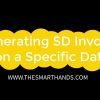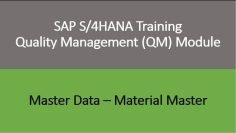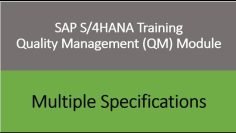This video provides an introduction to SAP S4HANA Sales and Distribution (SD) training. The key points discussed in the video are:
- Introduction to SAP SD: The video begins with an introduction to SAP S4HANA Sales and Distribution (SD) training, explaining that the course is designed for consultant level training. It is mentioned that anyone can learn this module, with no previous knowledge needed.
- What is ERP and SAP: The video explains what ERP (Enterprise Resource Planning) is and why it is needed. It then introduces SAP as an ERP software and discusses its history and various modules, including functional and technical modules.
- SAP SD Module: The video provides an overview of the SAP SD module, explaining that it manages customer relationships from raising a quotation to a sales order and then finally billing of the product or service. It also mentions that the SD module is closely integrated with other modules like Material Management, Accounting, Warehouse Management, Production Planning, etc.
- SAP History and Difference between ECC and S4HANA: The video discusses the history of SAP, starting from R1 system in 1972 to S4HANA in 2015. It also explains the difference between ECC and S4HANA, highlighting the advantages of S4HANA over ECC.
- Role of SAP SD Consultant: The video outlines the role of an SAP SD consultant, explaining the two types of jobs: SAP SD Support Consultant and SAP SD Consultant in Implementation Team. It also provides a brief overview of the day-to-day tasks for these two types of jobs.
- How to Follow This Course and Prepare for S4 SD Certification Exam: The video provides guidelines on how to follow the course and prepare for the S4 SD Certification exam. It emphasizes the importance of practice and recommends watching all videos first before starting practical tasks on the SAP system.
- Types of Data in SAP: The video concludes by discussing the types of data in SAP, including Master Data, Transactional Data, Customizing Data, and Reports. It explains that Master Data is maintained once and used in various transactions, while Transactional Data is created using Master Data. Customizing Data is specific to a sales organization, company code, or plant, and Reports are developed using Master and Transaction Data.



























